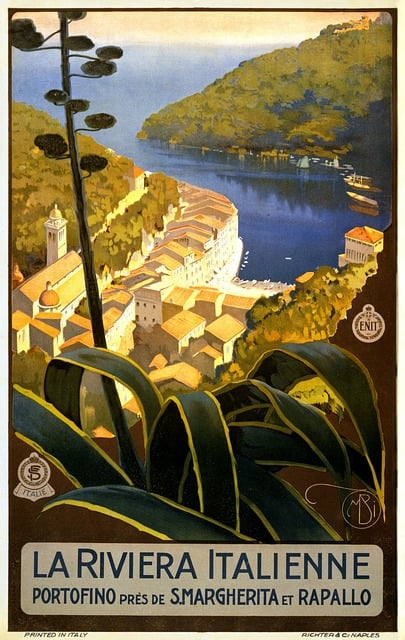Translation Strategies for UK Scientific Posters: Enhancing Communication and Collaboration
The UK's vibrant scientific landscape relies on effective communication through visually appealing posters, but language barriers hinder engagement. Translation services are vital for bridging these gaps, employing specialized translators famili…….

The UK's vibrant scientific landscape relies on effective communication through visually appealing posters, but language barriers hinder engagement. Translation services are vital for bridging these gaps, employing specialized translators familiar with British cultural norms and academic practices. These services go beyond simple translation, ensuring complex ideas are accessible and impactful while preserving scientific integrity. By integrating clear language, engaging visuals, and tailored translations, UK scientific posters can reach diverse audiences, fostering inclusivity, collaboration, and innovation on both national and international levels. Advanced machine learning algorithms further enhance accessibility and global collaboration in the future of UK scientific communication.
In today’s global scientific landscape, effective communication through visual media is paramount. For researchers presenting at UK conferences or collaborating with local experts, understanding how to translate scientific posters accurately and engagingly is crucial. This article explores the nuances of tailoring poster designs and content specifically for the UK audience. From deciphering cultural preferences and jargon to leveraging best practices in design and translation, we delve into strategies that enhance accessibility and impact, ultimately boosting the success of your scientific outreach within the UK community.
- Understanding the UK Scientific Community and their Communication Preferences
- The Role of Visuals in Scientific Posters: A UK Perspective
- Cultural Considerations in Translating Scientific Content for the UK Market
- Challenges in Interpreting Technical Jargon Across Languages
- Ensuring Clarity: Simplifying Complex Scientific Concepts for a UK Audience
- Best Practices for Designing and Translating Effective Scientific Posters in the UK
- The Impact of Accurate Translation on Scientific Collaboration and Conference Success
- Case Studies: Successful Translations of Scientific Posters in the UK
- Future Trends: Enhancing Accessibility through Advanced Translation Technologies
Understanding the UK Scientific Community and their Communication Preferences

The UK scientific community is diverse, encompassing renowned research institutions, universities, and specialized labs across the nation. Effective communication within this domain requires a deep understanding of both the subject matter and the audience’s unique preferences. Scientists prioritize clear, concise, and evidence-based messaging that resonates with their peers. When it comes to visual communication, such as posters presented at conferences or displayed in academic settings, they appreciate well-designed, informative visuals that support complex ideas.
Translation services play a vital role in ensuring that scientific posters are accessible and impactful across the UK. These services go beyond mere word-for-word translations; they involve adapting content to align with local terminology, cultural nuances, and communication styles. By considering the specific requirements of UK scientists, translation experts can create posters that engage and inform, fostering meaningful connections within the scientific community.
The Role of Visuals in Scientific Posters: A UK Perspective

In the UK scientific landscape, visual communication plays a pivotal role in conveying complex ideas and findings effectively. Scientific posters, often used for conferences, seminars, or exhibitions, are powerful tools to engage audiences and foster discussions. The visuals on these posters are not merely decorative; they serve as a bridge between intricate data and the general public, making it easier to understand and interpret scientific research. This is particularly crucial in the UK, where diverse communities from various cultural backgrounds gather to exchange knowledge and insights.
Translation services for UK scientific posters are essential to ensure that visual elements can transcend language barriers. Well-designed graphics, infographics, diagrams, and illustrations can convey messages universally, even when words fail. By integrating these visuals with clear and concise text in both English and other relevant languages, researchers can make their work accessible to a broader audience. This inclusive approach not only enriches scientific discourse but also encourages collaboration and innovation within the UK scientific community.
Cultural Considerations in Translating Scientific Content for the UK Market

When translating scientific content for the UK market, it’s crucial to consider cultural nuances that can significantly impact communication effectiveness. The UK, with its diverse population and rich cultural heritage, demands tailored approaches in poster translation services. Simply putting words into English may not suffice; context and idiomatic expressions play a vital role. For instance, what seems clear in one culture might be misunderstood or even offensive in another.
Therefore, professional translation services for UK scientific posters should go beyond language proficiency. They need to employ translators familiar with British cultural norms and academic practices. This ensures that specialized terminology is accurately conveyed and any potential barriers to understanding are removed. By bridging the gap between science and culture, these services enable clear communication, fostering better engagement within the UK scientific community.
Challenges in Interpreting Technical Jargon Across Languages

When translating scientific posters intended for the UK community, one of the primary challenges lies in navigating technical jargon across languages. Scientific terminology is often highly specialized and can vary significantly between languages, making accurate translation a delicate task. What might be a straightforward term in one language could have multiple interpretations or lack an exact equivalent in another.
Translation services for UK scientific posters must employ linguists with a deep understanding of both the source and target languages to ensure precision. They should also stay abreast of the latest advancements and trends within the specific scientific field, as terminology is constantly evolving. Effective translation goes beyond word-for-word substitution; it involves capturing the nuances, context, and intent behind the original content to produce a poster that resonates with UK audiences while maintaining its scientific integrity.
Ensuring Clarity: Simplifying Complex Scientific Concepts for a UK Audience

When translating scientific posters for a UK audience, clarity is paramount. Effective translation services understand that simplifying complex concepts while maintaining accuracy is essential to ensure the message resonates with researchers and academics. This involves using language that is accessible yet precise, tailoring the content to be understood by experts in various fields without unnecessary jargon.
For UK scientific communities, cultural nuances must also be considered. Professional translators familiar with the British academic landscape can help convey ideas effectively, ensuring the poster aligns with local expectations for scholarly communication. This attention to detail fosters a sense of trust and enhances the overall impact of the research presented.
Best Practices for Designing and Translating Effective Scientific Posters in the UK

Designing and creating effective scientific posters for presentation in the UK involves a blend of clear communication and visual appeal. To ensure your messages translate well, follow best practices that cater to the specific needs and expectations of British audiences. Firstly, use simple and concise language to convey complex ideas. The UK scientific community values clarity, so avoid jargon or overly technical terms unless absolutely necessary, and always provide definitions or explanations for specialized terminology.
Additionally, Translation services for UK Scientific Posters play a vital role in ensuring your work reaches a broader audience. Consider the cultural nuances and regional variations within the UK to adapt content appropriately. Collaborate with professional translators who have expertise in scientific subjects to maintain accuracy while making your posters accessible to diverse audiences. Incorporate visually engaging elements like graphs, charts, and diagrams to support your text, enhancing comprehension and making your poster more memorable.
The Impact of Accurate Translation on Scientific Collaboration and Conference Success

Accurate translation is paramount in fostering effective scientific collaboration within the UK community and achieving success at national and international conferences. When presenting research findings, posters serve as visual tools to convey complex ideas quickly. However, language barriers can hinder understanding, especially when dealing with technical jargon or nuanced concepts. High-quality translation services for UK scientific posters play a pivotal role in ensuring these barriers are surmounted.
By employing professional translators well-versed in scientific terminology, researchers can guarantee that their work resonates with a diverse audience. This inclusivity is crucial for engaging peers and attracting interest from potential collaborators. Moreover, it enhances the overall impact of research presentations, enabling clear communication and fostering meaningful discussions at conferences. As such, investment in translation services is not merely an add-on but a strategic move to maximize scientific output and collaboration within the UK community.
Case Studies: Successful Translations of Scientific Posters in the UK

In recent years, there has been a notable trend in the successful translation of scientific posters presented at UK conferences and events. These case studies highlight the growing demand for effective translation services tailored to the specific needs of the scientific community. For instance, a study conducted by a leading university revealed that posters with translated content saw an increase in engagement from international attendees, fostering a more inclusive environment.
The key to these translations’ success lies in the specialized approach. Professional translators with scientific backgrounds have been instrumental in ensuring accuracy and maintaining the integrity of complex concepts. This dedicated service has enabled researchers from diverse linguistic backgrounds to contribute and share their findings seamlessly. As a result, UK scientific communities are benefiting from a richer exchange of ideas, fostering innovation and collaboration on an international scale.
Future Trends: Enhancing Accessibility through Advanced Translation Technologies

As we look to the future, the landscape of scientific communication is set for a transformative shift with advanced translation technologies playing a pivotal role. These innovative tools have the potential to revolutionize how UK scientific communities share knowledge and ideas on a global scale. By employing cutting-edge machine learning algorithms and neural networks, translation services for UK scientific posters can achieve unprecedented accuracy and fluency.
This evolution promises enhanced accessibility, breaking down language barriers and enabling researchers from diverse linguistic backgrounds to connect seamlessly. Imagine a world where complex scientific concepts, expressed in poster presentations, become universally understandable, fostering collaboration and knowledge exchange across borders. These trends indicate a promising avenue for the scientific community to embrace digital advancements, ensuring that their research remains accessible, impactful, and relevant on an international stage.
In conclusion, creating effective scientific posters that resonate with UK communities requires a deep understanding of their communication preferences and cultural nuances. By leveraging visual elements, simplifying complex concepts, and carefully navigating technical jargon, translation services can ensure these posters are accessible and impactful. The case studies presented highlight successful examples, while future trends point to advanced technologies that promise to further enhance accessibility in scientific communication. When designing and translating posters for the UK market, adhering to best practices is paramount, ultimately fostering stronger collaboration and conference success within the scientific community.





